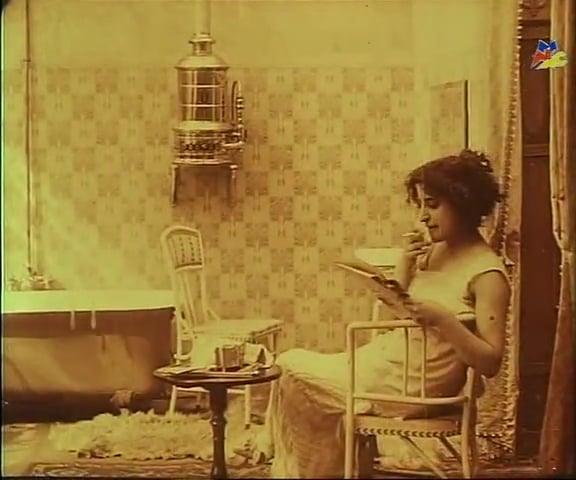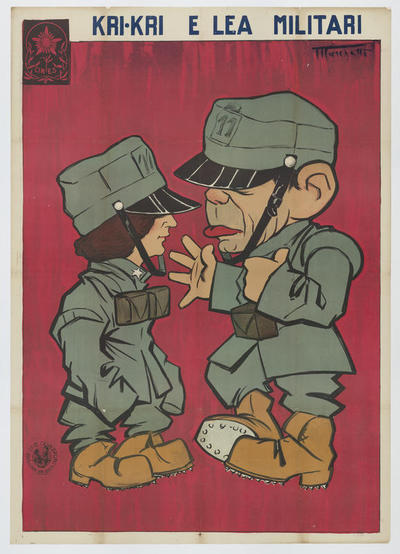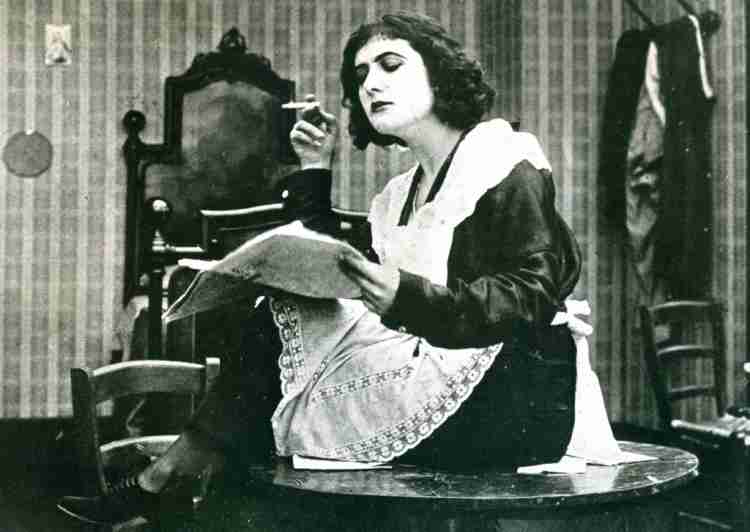Emma Morton
Background
I received my BSc in Environmental Science from Lancaster university in 2002, which I then followed with a PGCE in Geography from Manchester Metropolitan University. For the next 10 years I taught Geography at A-Level and became the Programme Manager for the Humanities department in a London based Sixth Form. In 2012 I completed a BA in Film and Media and in 2014 an MA in World Cinema both from Birkbeck College, University of London. My MA dissertation, ‘An examination of Italian nationalism from gli anni d’oro to Fascism,’ explored the role of cinema in the growth of Italian nationalism in the periods just prior to WW1 and WW2. This work partially forms the basis my PhD, which I began in October 2017.
My research interests include, Italian cinema, early cinema, and gender studies.
Research
My PhD thesis, 'Women and the Nation in Early Italian Cinema, 1905-1914', examines the very prolific but often marginalised presence of women in early Italian cinema and provides an in-depth study of the intersections between gender and the nation that occur in early cinematic representation. It raises the question of how the image of women act as a visual and discursive sign that rework and expand narratives of national belonging in Italy in the 1910s. A historical and theoretical introduction provides the context for thematic chapters exploring a parade of related issues: the history of women in the early Italian film industry; how self-representation in search of a female identity and voice is problematised by discourses of nationalism; how early film production frames women’s problems; how the female body acts as a narrative for the projection of feminist ideals; how the representations of women reflected not only gender issues but also socio-national crises; and finally, how and why female representation became integrated into the process of nationalising women and thereby engendering the nation. Each chapter presents a theoretical-historical discussion of the chosen theme, followed by in-depth case studies that provide contextual readings of the films. This thesis contributes to the feminist revision of the early Italian film canon by placing women at the centre of Italian nationhood.
Supervisors: Professor Stephen Gundle and Professor Karl Schoonover
Teaching
In the Spring term of the 2019-2020 academic year, I assisted Professor Stephen Gundle taking seminars in Italian Cinema for the second-year undergraduate World Cinema module.
During the 2020 Autumn Term, I assisted Dr Julie Lobalzo WrightLink opens in a new window on the Classical Hollywood Cinema module, taking seminars for second-year undergraduates.
In the Spring term of the 2020-2021 academic year, I assisted Professor Alastair Phillips and Professor Rachel Moseley taking seminars for the first-year undergraduate Film and Television Criticism module.
In the Spring - Summer term of the 2020-2021 academic year, I first and second marked the second-year undergraduate World Cinema and Film History modules essays and examinations.
Publications
Peer-Reviewed Articles
'Queer Temporalities: Boredom and Bodily Intelligence in Early Italian Slapstick Comedies', Frames Cinema Journal, Issue 20: Queering the quotidian – Queer phenomenological approaches to ‘lowbrow’ entertainment. Issue 20, Winter 2022
‘The Wild Corporeality of Lea Giunchi, the Silent Italian Comedienne of the 1910s', Genre en séries: cinéma, télévision, médias, 12-13, 2022 - Gender and comedy: stars, performances, characters.
‘Transitory Imitators, Transgender and Genderfucks: Male Cross-dressing in Italian cinema, 1909-1915’, Immagine. Note di storia del cinema Special Issue: What’s Queer in Italian Film History? Looking for Non-normative Representations from the Silent Era to the 1960s, n.22/2020. ISSN: 1128-7101.
Book Reviews
Queer Timing: The Emergence of Lesbian Sexuality in Early Cinema, Early Popular Visual Culture, (2022).
Review of Luca Cottini, The art of objects: the birth of Italian industrial culture, 1878-1928Link opens in a new window, Early Popular Visual Culture,18:3 (2020), pp. 329-331.
Other
'Motherhood or Mother Nature? Recasting infertility as Ecological Necessity', Anatomy of a Scream - Grim No. 8 - Horror & Parenthood, 1st February 2021.
'Cross-Dressing and the Comedy of Masculinity in Early Italian Film,’ in BUCFVC Learning on Screen ViewFinder Magazine: Masculinity, n.112. (2019).
Conference Papers
'Queer Imaginings in British Pre-School Children's Television', Queer Children's Film and Television, University of Cambridge, 17 November 2023.
'Male Cross-dressing in early Italian cinema, 1909-1915', Worldmaking Around the World: Rethinking the Intersections of Popular Media, Translation and LGBTQ+ Activism Across Cultures, Bill Douglas Cinema Museum, University of Exeter, 21-22 May 2021.
'Queering the Narrative in Early Italian Slapstick Comedies', Time and the Body in Film, Television and Screen Studies, 9th Annual BAFTSS Conference, 7-9 April 2021.
'Cross-dressing in Early Italian Cinema', Department Research Day, University of Warwick, 13 May 2020.
' “This is for the high price of meat and cheese”: Sexual and Political Violence in Swept Away', The Cinema of Lina Wertmüller, The Centre for Research and Media Education (CREAM) at the University of Westminster, 13 December 2019.
'Cinematic Gardens as Metaphysical Places of Moral Judgement', 'Er Indoors': Domesticity and Nature in Home and Garden, University of Warwick, 23 November 2019.
'Funny Women: Lea Giunchi, the Silent Italian Comedienne of 1910s', Reclaiming the Screen: Addressing Overlooked Women in Film and TelevisionLink opens in a new window, De Montfort University, 14 June 2019.
'Women, Slapstick and Italian-ness', Department Research Day, University of Warwick, 15 May 2019.
Public Engagement
- ‘Alternative Christmas films to suit an alternative Christmas 2020’, Knowledge Centre, University of Warwick, 14 December 2020.
- Appeared on BBC Radio Coventry/Warwickshire and BBC Five Live, 2020-2021.
Other Roles
- Associate Fellow of the HEA.
- PGR representative of BAFTSS (British Association of Film, Television and Screen Studies) (2020 - ).
- Member of the The Girlhood Studies Research Network, A Girls' Eye View, at the University of Exeter (2022 - ).
- PhD representative of the Film and Television postgraduate SSLC (2020-2021).
- Founding Member of the Italian Cinema Group based in the Department of Film and Television Studies at Warwick (2021 - ).
- Member of the Warwick Department of Film and Television Studies Decolonising the Curriculum Committee (2020 - ).
- Member of the Queer Television Reading Group based in the Department of Film and Television Studies at Warwick (2020 - ).
- Chair of the 'Motherhood' panel, 9th Annual BAFTSS Conference, 7-9 April 2021.
- Co-organiser of the Postgraduate Workshop, 9th Annual BAFTSS Conference, 7-9 April 2021.
- Co-organiser of the Film and Television Departmental Research Day, University of Warwick, 13 May 2020.
- Tutor for the Brilliant Club supporting pupils from underrepresented backgrounds to access university (2021).
- Online Tutor for the Undergraduate Warwick Online Learning Certificate (WOLC) (2020).
- Academic Tutor for the University of Warwick Realising Opportunities Programme (2018-2019).
- Member of BAFTSS (British Association of Film, Television and Screen Studies), Domitor (The International Society for the Study of Early Cinema), Feminist Studies Association, Society for Italian Historical Studies, Coordinating Council for Women in History and the BFI (British Film Institute).


L'ultima vittima (1913)

Sangue blue (1914)

Kri-Kri e Lea Militari (1913)

Francesca Bertini
Contact: E dot Morton at warwick dot ac dot uk
